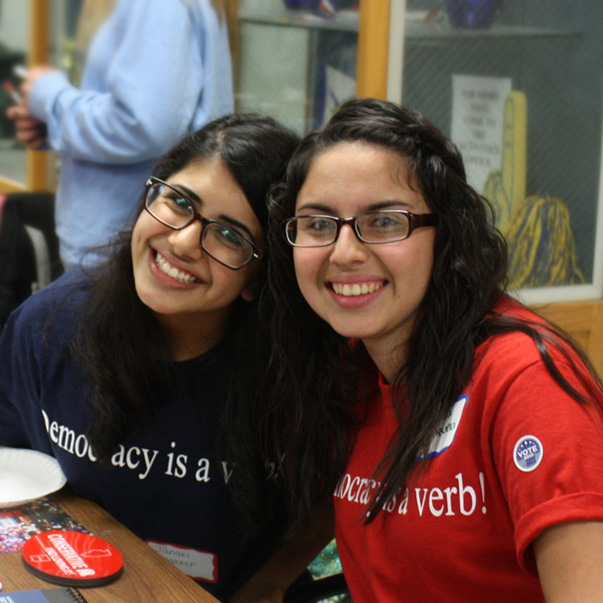
Overview
A Healthy Democracy
A healthy democracy–one that truly thrives, not just survives—depends on the informed and active participation of all citizens. Yet, civic learning experiences have nearly vanished from many of our schools leaving the next generation ill-prepared for meaningful engagement in public life.
The Democracy Schools Initiative
The Illinois Democracy Schools Initiative supports a growing network of schools that are committed to equipping students to nurture and sustain our democracy, especially when a growing civic empowerment gap exists impacting both students of color and students living in rural communities. We believe that expanding and prioritizing civic learning opportunities and experiences for schools will help to close the civic empowerment gap and improve overall democratic outcomes in our state.

Our Approach
High-quality civic learning experiences allow young people to develop the knowledge, skills and dispositions that facilitate informed participation in public life. Research has shown that these experiences also promote civic equality, build 21st century competencies, improve school climate and reduce high school drop-out rates. The Illinois Democracy Schools Initiative was launched to recognize and support high schools that are dedicated to expanding and improving civic learning experiences across the curriculum. Since its inception, Illinois Democracy Schools has broadened its approach to include multiple stakeholders across the curriculum in grades K-12.
Supporting Civic Learning Across the School System (C.L.A.S.S.)
To sustain a school-wide commitment to civic learning, research identifies key elements that can inform a K-12 systemic approach that engages multiple stakeholders. These elements build upon research from the Illinois Civic Blueprint, 2nd edition, a “Lived Civics” framework, and the Pedagogy Companion to the Educating for American Democracy Roadmap.
To learn more about the 2024 changes to the IDS model, read this blog.
Democracy Schools Network
Recognized schools join the Democracy Schools Network, a community of faculty and administrators that supports sustained commitment to civic learning through peer-to-peer learning, resources sharing, professional development opportunities, and collaboration between schools. Member schools also receive financial support from the to pursue civic learning improvement plans.
